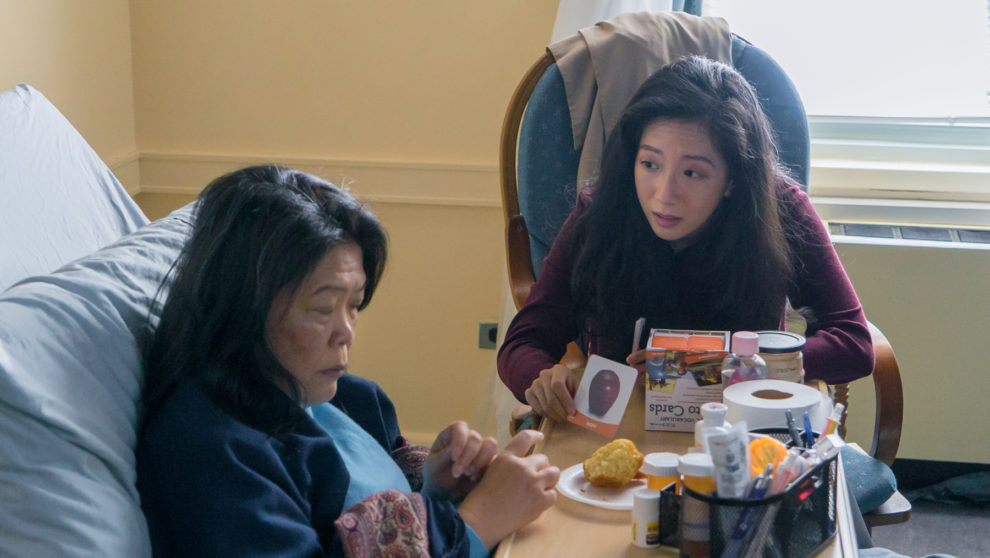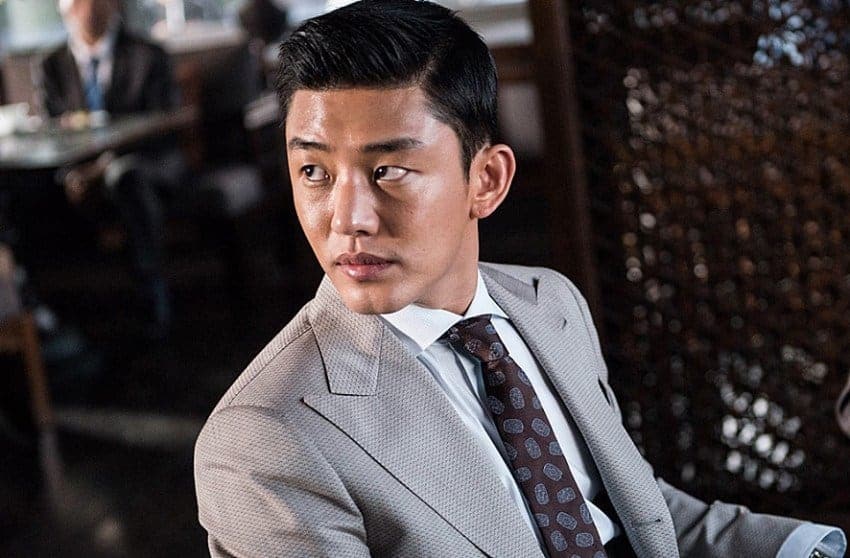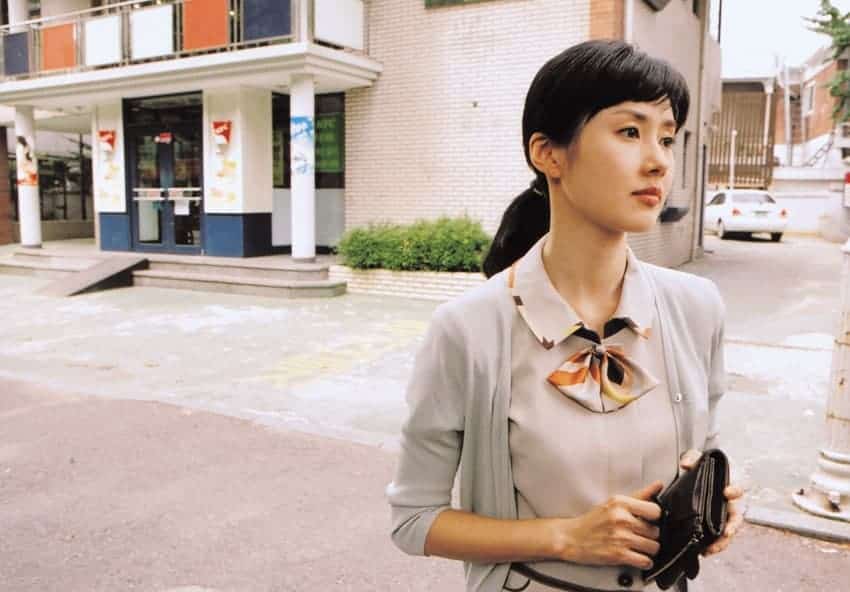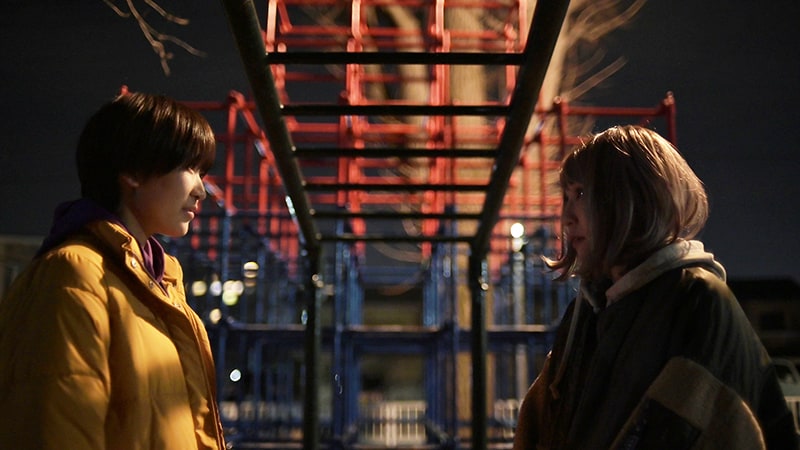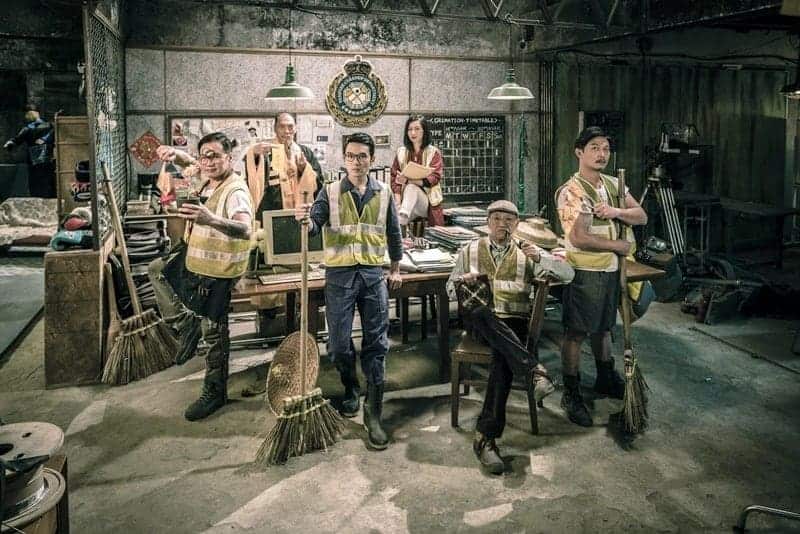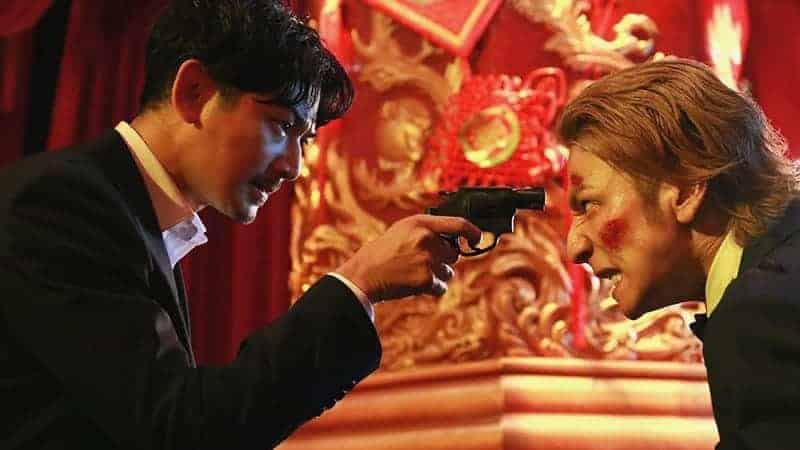Perhaps one of the toughest stages when it comes to a disease such as Alzheimer's, is how it estranges a loved one from its relative. Along with a certain physical deterioration comes the change of a person, a development which correlates with the loss of memory, loss of language and, maybe the most painful, the inability to recognize those people around. For those suffering from the illness and their families, it is a terrible challenge and one that highlights how a disease such as this can leave emotional scars which may never heal.
“Mother Tongue” is screening at CAAMFest Forward

In her short feature “Mother Tongue”, Chinese-born filmmaker Eris Qian tackles the challenging issue through a narrative revolving around a mother and a daughter. When Chinese-American Lisa (Jenny Lin) hears about her mother's deteriorating health, she tries to connect to her many times, even though her mother has lost the ability to speak English and only communicates through the Chinese language, which Lisa does not understand. With the birth of her first child moving closer, Lisa tries to piece together the mystery of her mother's last days, always stumbling upon the language barrier between her and her mother, but also upon a memory which may reveal the intensity of the emotional bond between the two women.
Although many may have some knowledge (or think they do) about Alzheimer's, Qian tackles the subject matter through a very personal, intimate story. While she does not shy away from the challenges and hardships, for example, by mirroring the language barrier created by the disease with a barrier between mother and daughter, she also emphasizes how language can bridge this gap, unveiling memories and personal links. Indeed, the most beautiful aspect may be the idea of the poem about the moon, which, although her mother slowly forgot all the lines, lives on in the memory of her daughter, who in return may recite it to her child.
While language is certainly the most important element of “Mother Tongue”, Qian's narrative is infused with equally beautiful imagery. Thanks to Prasanth Kamalakanth's cinematography, along with Narim Kim's music, the architecture of each shot mirrors the emotions of the characters, their confusion, their level of emotional stress, but also the loving memory which, in the end, creates a strong bond between generations.
“Mother Tongue” is a wonderfully-shot and skillfully-executed short feature about the hardships of memory loss, but also the power of language as it creates new, stronger connections between people.


